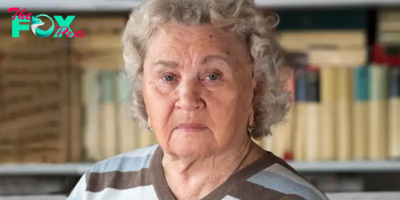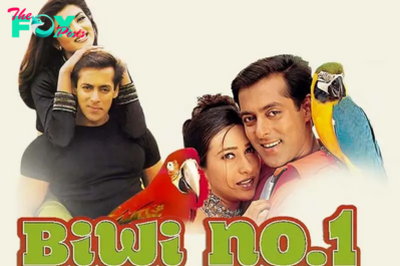Lifestyle
Let me be me and not a representative of culture: Arooj Aftab
When the hit single Raat Ki Rani dropped online in April, it became clear that celebrated Pakistani composer and vocalist Arooj Aftab had carved out a very firm niche for herself in the world of music.
As seasoned music fans will be aware, Raat Ki Rani is the first single from the Grammy winner's upcoming album Night Reign, due to be released on May 31. Following the success of her 2021 album Vulture Prince, Aftab has become synonymous with a fusion of Eastern and Western music. Sitting down for an interview with the New York Times, the Brooklyn resident made no bones about what she wants to achieve with her music.
“Let me be me and not a representative of culture,” she urged. “People still call me, like, ‘the Sufi fusion singer,’ or whatever. And it’s just, like, I actually don’t really know anything about Sufism.”
The journey so far
Aftab may not be an expert on Sufism, but one thing she knows inside out is how to create music. Night Reign is her first release for a major label, Verve, and fourth solo album overall.
Musically speaking, Aftab has not been idle since graduating from Berklee College of Music in Boston, where she studied production and audio engineering. After falling in love with the local jazz scene and the community of musicians, she moved to New York upon after graduation.
The award-winning crooner has not stopped since. She marked her debut with Birds Under Water (2014), followed by Siren Islands (2018), and Vulture Prince (2021). Last year, Aftab also released a collaborative album with jazz musicians Shahzad Ismaily and Vijay Iyer before turning her attention to the upcoming Night Reign.
What sets Night Reign apart
For her fourth solo studio album, Aftab seized the opportunity to showcase different aspects of her personality and collaborate with experts in the field. The album offers a comprehensive self-portrait, with vivid songs veering as close to pop music as Aftab has ever come to.
A true amalgam of different styles, Night Reign tracks range from Whiskey, a starry folk English-language love song depicting her most unguarded moments as a writer, to Last Night Reprise, a jazzy interpretation of a poem by Rumi.
As for Raat Ki Rani, Aftab has previously gone on record to talk about the joys of working with actor Tessa Thompson during the shooting of the video. The song marks Aftab’s first official music video. Taking her first tentative steps in a heretofore unexplored area, Aftab found Thompson to be both a natural collaborator and a role model for navigating Business on her own terms. Speaking warmly of her colleague, Aftab said, “I haven’t been around that type of person who has been in the industry a long time and still manages their mental Health and knows how to be chill and natural and not overwhelmed by stuff. Maybe I’m just a baby!”
To match the range of the songwriting on the album, Aftab enlisted her familiar collaborators, including harpist Maeve Gilchrist, bassist Petros Klampanis, guitarist Gyan Riley, veteran percussionist Jamey Haddad and her bandmates Ismaily and Iyer. She also extended her circle to Costello (who plays Wurlitzer on Last Night Reprise), guitar virtuoso Kaki King, Philadelphia spoken-word artist Moor Mother, and Joshua Karpeh, the R&B songwriter and multi-instrumentalist who records as Cautious Clay.
Vulture Prince, the sad album that listeners adored
Night Reign marks a stark departure from its predecessor, Vulture Prince. Where Night Reign embraces different styles, Vulture Prince was borne from a place of grief after the death of Aftab’s younger brother in 2018. A minimalist blend of jazz, folk and ghazals, the album was steeped in sadness, and resonated with a pandemic-fuelled audience.
The hit track from that album, Mohabbat, has racked up 6 million plays on Spotify, and is a personal favourite of former US president Barrack Obama. This was also the song that earned Aftab a Grammy for Best Global Music Performance, making her the first Pakistani to receive the award. Aftab recently joked in an Instagram post that she was retiring Mohabbat from her set list, but admitted she could never go through with taking such a monumental step.
“I’ve never had a hit, so I don’t know what to do,” she confessed as she confirmed that she still connects to the song every time she sings it. “I guess Norah Jones still has to play Come Away With Me.”
Musing over the resounding success of the album, Aftab said, “Vulture Prince bridged a gap in the industry. There were renditions of old poems and traditional songs, heritage material from Pakistan and South Asia.”
Despite putting together a blend of cultures, Aftab said she was careful to avoid instruments or textures that Western audiences might associate with the term “world music” — a philosophy she boiled down to “bitching about tablas.” Ultimately, however, Aftab said that she has evolved with each passing album.
“Vulture Prince was a sad record because I was sad,” she noted. “But in the years that passed, I’ve had this joy inside of me. It would be unfair if it didn’t translate in my music.” The success of Vulture Prince put Aftab on a different track. “I was finally financially free,” she said. “I don’t have a desk job. I don’t have a supervisor. I can be in a different city every night playing.”
With Aftab flying high following her recent successes, listeners can be assured that here is a composer who isn’t going anywhere – and what a treat that is for anyone with a musical ear.
Have something to add to the story? Share it in the comments below.
-

 Lifestyle2h ago
Lifestyle2h agoBREAKING: One Direction stars gather at former member Liam Paynes funeral, and a surprise meeting between Kate Cassidy and Cheryl Cole sparks see more.cau
-

 Lifestyle2h ago
Lifestyle2h agoBREAKING NEWS: Keanu Reeves Refuses to Present Whoopi Goldbergs Lifetime Achievement Award: Shes Not a Good Person Full story.cau
-

 Lifestyle7h ago
Lifestyle7h agoHOT NEWS: KELCE NOT HAPPY- Travis Kelce vents his anger UP over Chiefs first loss, That makes me angry..cau
-

 Lifestyle7h ago
Lifestyle7h agoI Couldn’t Reach out to My Husband for Days – Then My Mother-in-Law Called Me & Revealed the Shocking Truth
-

 Lifestyle8h ago
Lifestyle8h agoMy Stepmom Made Me Sleep in a Shed and Gave My Room to Her Kids — My Mom Immediately Brought Her Back Down to Earth
-

 Lifestyle8h ago
Lifestyle8h agoWoman Comes to Meet Her Fiancé’s Parents and Sees Another Woman Posing as Her at the Dinner — Story of the Day
-

 Lifestyle13h ago
Lifestyle13h agoFans react after single Kim Kardashian hangs out with $30K Tesla robot: Low-maintenance boyfriend.cau
-

 Lifestyle13h ago
Lifestyle13h agoElon Musk: 53-Year-Old Welcomes Twelfth Member to His Growing Family and Everyone Says So.cau






















